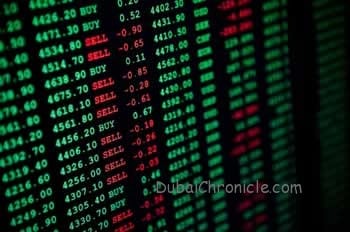
Risks rise over Emerging Markets, Syria, Fed stimulus extraction;
Mixed performance in Event Driven, Relative Value Arbitrage as HFRI posts 2nd decline for 2013
Hedge funds declined in August while US equity markets posted the largest decline of 2013 as investors reduced risk in reaction to weakness in Emerging Market equities and currencies, expectations for the end of tapering by the US Federal Reserve, and uncertainty regarding US and international involvement in Syria. The HFRI Fund Weighted Composite declined by -0.70 percent for the month with mixed performance across various Equity Hedge, Event Driven and Relative Value Arbitrage strategies offsetting weakness in Macro strategies, as reported today by HFR, a global leader in the indexation, research and analysis of the global hedge fund industry.
The HFRI Event-Driven (ED) Index posted a narrow decline of -0.04 percent for the month, paring the 2013 gain for ED to +6.9 percent, as the market for corporate transactions remained robust despite the equity market declines. Credit Arbitrage hedge funds gained +0.8 percent and Distressed funds advanced +0.08 percent in August, while Merger Arbitrage and Special Situations saw narrow declines of -0.11 and -0.24 percent, respectively.
The HFRI Relative Value Arbitrage Index fell -0.46 percent for the month, with equity and fixed income hedges reducing volatility across RVA sub-strategies. The HFRI RV: Fixed Income – Asset Backed and Convertible Arbitrage Indices posted gains of +0.15 and +0.22 percent, respectively, for the month, while Volatility funds fell -0.20 percent. The HFRI Equity Hedge Index declined -0.7 percent in August, as gains across HFRI Energy/Basic Materials (+0.26 percent), Technology/Healthcare (+0.3 percent) and Short Bias (+0.6 percent) were offset by declines in Fundamental Value and Growth, which dropped -1.3 percent and -0.6 percent, respectively.
The HFRI Macro Index declined -1.2 percent in August, the fourth consecutive monthly decline, with weakness across most sub-strategy and Emerging Market exposures. The HFRI Emerging Markets (Total) Index declined -0.77 percent, with weakness across all EM regions concentrated in Latin America, the Middle East and India. The HFRI EM: Latin America Index declined -1.3 percent, while HFRI: Multiple Emerging Markets fell -1.3 percent. The HFRI EM: Asia ex-Japan Index posted a narrow gain of +0.02 percent in August, with gains in many China-focused funds pared by mixed performance across other Emerging Asian regions. Quantitative, trend-following CTAs also experienced losses, with the HFRI Macro: Systematic Diversified Index declining -1.8 percent. While QE tapering, Syria, and Emerging Market risk affected Macro performance, other risks including fed leadership transition and US debt ceiling debate also impacted Macro performance.
“Volatility and uncertainty increased in August across both economic and political forums, contributing to mixed sub-strategy performance, wide dispersion and Macro-centric weakness across hedge fund strategy performance,” stated Kenneth J. Heinz, President of HFR. “While the geopolitical environment has remained fluid and unpredictable through month end, many funds entered August with conservative positioning in regard to expectations for US Federal Reserve stimulus extraction, reducing exposure to rising bond yields through effective portfolio hedging, composition and duration management. Recent Emerging Markets weakness has created opportunities in EM equity and currency markets for hedge funds to provide liquidity and position for growth across various EM regions. Both of these trends are likely to contribute to strong performance in coming months as the joint economic and political uncertainties continue to evolve,” Heinz added.




































